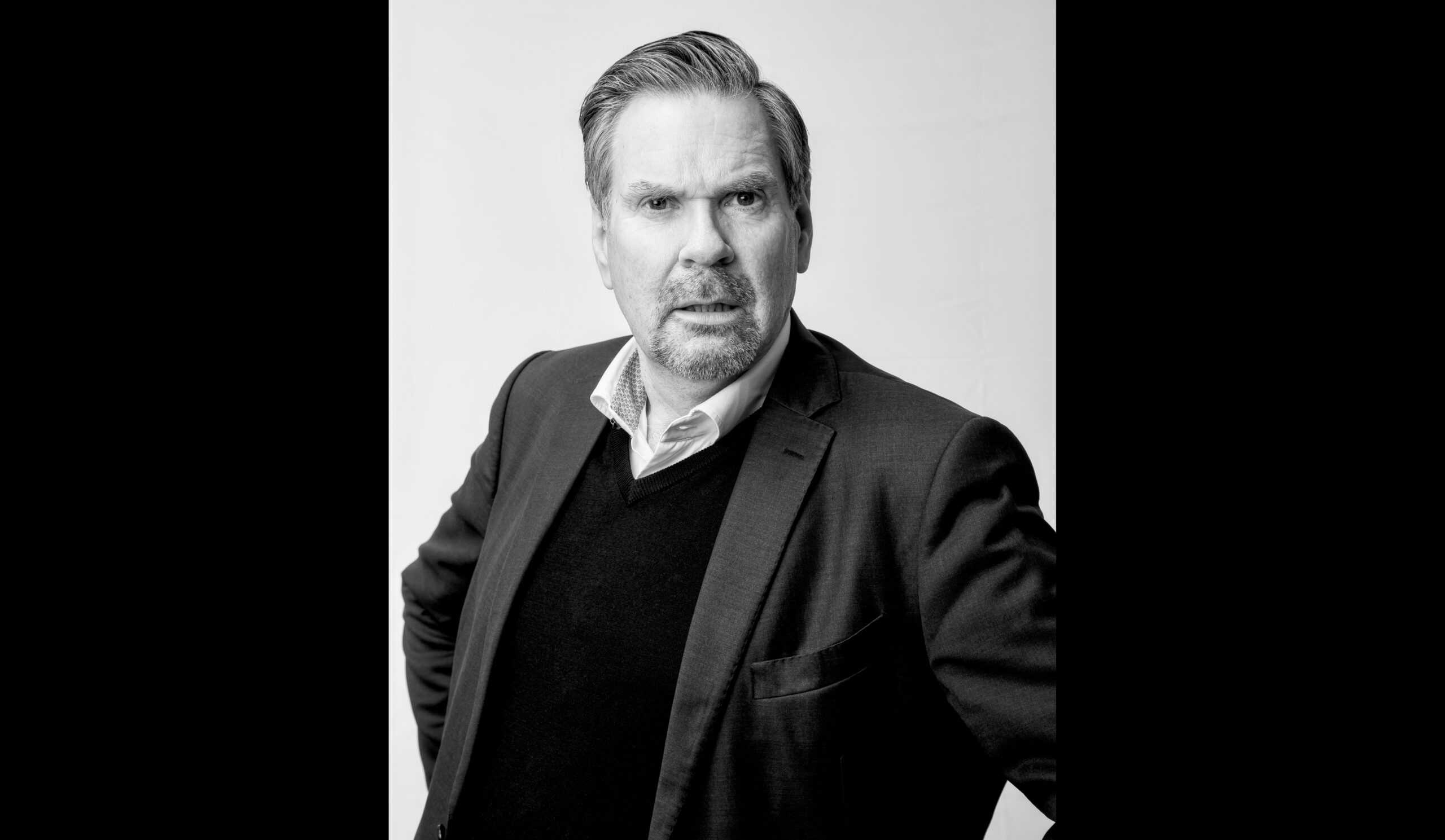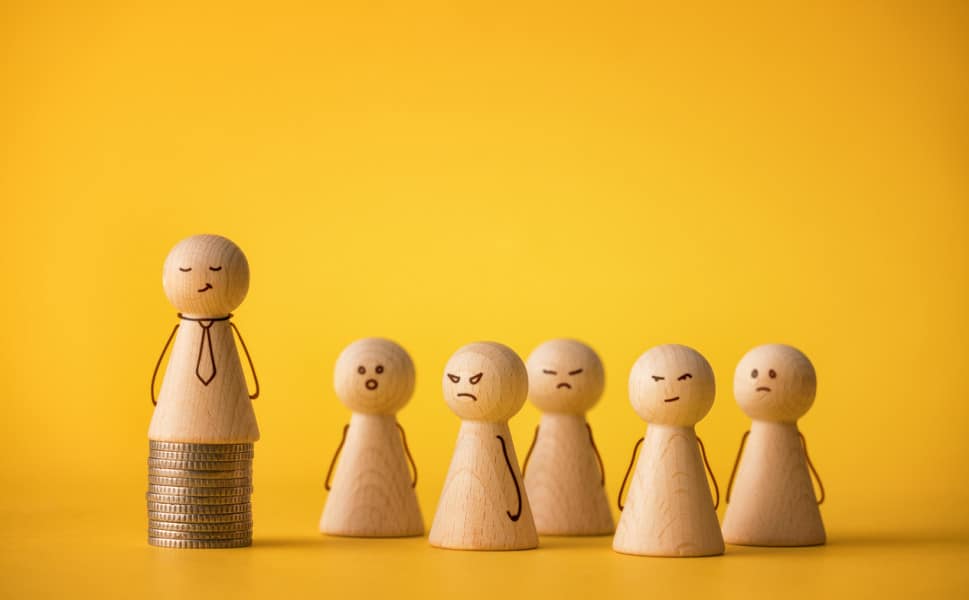Of course, you should be grumpy!
(Article in the Norwegian newspaper Aftenposten april, 2024. NB: Irony-warning…)
Remember, it’s not a crime to be grumpy! Therefore, Aftenposten’s commentator Frank Rossavik in his March 23rd commentary «It’s okay to be grumpy» naturally omitted mentioning the ridiculous fear some have that grouchy and negative people might burden their surroundings with discomfort and problems.
Those of us with jobs and private lives where we must continuously cooperate and interact with other people, must of course accept that irritating energy vampires create worse atmosphere, results, and reputation. And should they, especially if they are bosses, cause us psychological problems and burnout, we only have ourselves too blame – we could just have avoided them by working from home.
Fortunately, Rossavik notes that successful artists and businesspeople like Hugh Grant, Ludwig van Beethoven, and Jeff Bezos are grumpy and angry ‘privately’.
Perpetually grumpy and scolding, Grant is a prime example that sullen grumblers are most likely to succeed as actors. It’s of course a bit annoying that Harrison Ford, Keanu Reeves, Steve Buscemi, Emma Watson, Tom Hanks, Ryan Gosling, and Denzel Washington are widely known to be very sympathetic and cheerful – and perhaps even better actors than Hugh Grant, and that award-winning Helen Mirren’s motto is «Be on time, and don’t be an ass». But such details should not be dwelled upon.
Everyone knows that Beethoven would never have created such great music if he hadn’t been grumpy, thrown objects at people, and generally behaved poorly. Therefore, it is completely unnecessary to mention that Haydn, Brahms, Handel, Dvorak, and Sibelius also produced good compositions, even though they generally led happy and fulfilling lives.
Jeff Bezos, the founder of Amazon, is a delightful guy – a grumpy and scolding man who has become one of the world’s richest men! He even permitted employees could employees to urinate in plastic bottles so they wouldn’t have to take bathroom breaks during their busy shifts. Despite the company having twice as many occupational injuries as comparable companies, the generous Bezos permits employees to take unpaid leave to recover from ailments and exhaustion.
The claims by employees that Blue Origin, Bezos’ space company, is a ‘toxic’ workplace and that working there was the worst experience of their lives, merely reflect their own exaggerated opinions. And surely, everyone can acknowledge that it was more important for Bezos to personally try to win the billionaire rocket race to space in 2021 than to heed his employees’ safety warnings – it could have delayed the schedule!
Rossavik writes that the financial crisis of 2007–2008 would not have occurred at all if borrowers had been less optimistic.
After all, everyone knows the vast and devastating socio-economic impact that optimists have!
That borrowers might have been slightly misled by unrealistic credit assessments from speculative financial institutions that exploited the government’s overly extensive deregulation and laissez-faire, should not be emphasized. Or that the banks’ excessively high risk-taking led to them having trouble covering losses when the housing market collapsed. No, more pessimistic borrowers are the only thing that could have prevented the entire financial crisis.
There’s much peculiar research. That psychological safety is the most important thing for a team to succeed well, is something no one should believe. Researchers at Harvard and Google’s Project Aristotle have found that employees in such an atmosphere experience acceptance to express their ideas and concerns, speak openly, ask all kinds of questions, and admit mistakes and take risks, without fear of negative consequences. Unbelievable! Forget banal team bonding and instead invite the grumpy coworkers into the teams, who can bring people back down to earth. Just because a lack of psychological safety has major negative effects on employee well-being, stress, burnout, turnover, and overall performance in the organization, we must not underestimate the importance of grumpy, chronic complainers.
In hospitals’ patient processes, they have discovered that if the person who is to send the patient or a sample on to the next person is grumpy, stubborn, or condescending, the risk increases that the person receiving the information misunderstands, is afraid to ask, or does not get everything. But isn’t it quite excessive to demand that hospital staff should positively smooth this process to ensure that the recipient receives it well and understands? There is after all a human right to be sour and unpleasant! And if vital patient information is lost along the way, it’s probably not that serious. The patients are often so ill that they understand nothing anyway.
Researchers Casciaro and Lobo asked 10,000 employees to categorize their colleagues in two areas: Whether they were likeable/unlikeable and competent/incompetent. Somewhat surprisingly, it turned out that between those who were incompetent and likeable and those who were competent and unlikeable, most preferred to work with the first group, who were not so skilled, but very nice. Good heavens! Have everyone become wimps who no longer tolerate some harassment, bullying, and condescending mistreatment from people who are really smart?
That positive people with good moods are treated a bit condescendingly and considered to be lightweights, compared to «the serious,» should be expected. Even though the word serious has two meanings: grave and professional, you must of course be both. You cannot laugh and still be considered a serious person! When I was in audience with the Dalai Lama a few years ago, he alternated between talking about advanced quantum physics and telling self-deprecating stories about his blunders, where he laughed so hard he shook. But he probably just had a bad day.
So forget the Dalai Lama’s advice: «Stay away from negative people. They only show up to share complaints, problems, disaster scenarios, fears, and prejudices against others. If someone just needs a bucket to throw all their trash in, make sure it’s not in your mind.»







